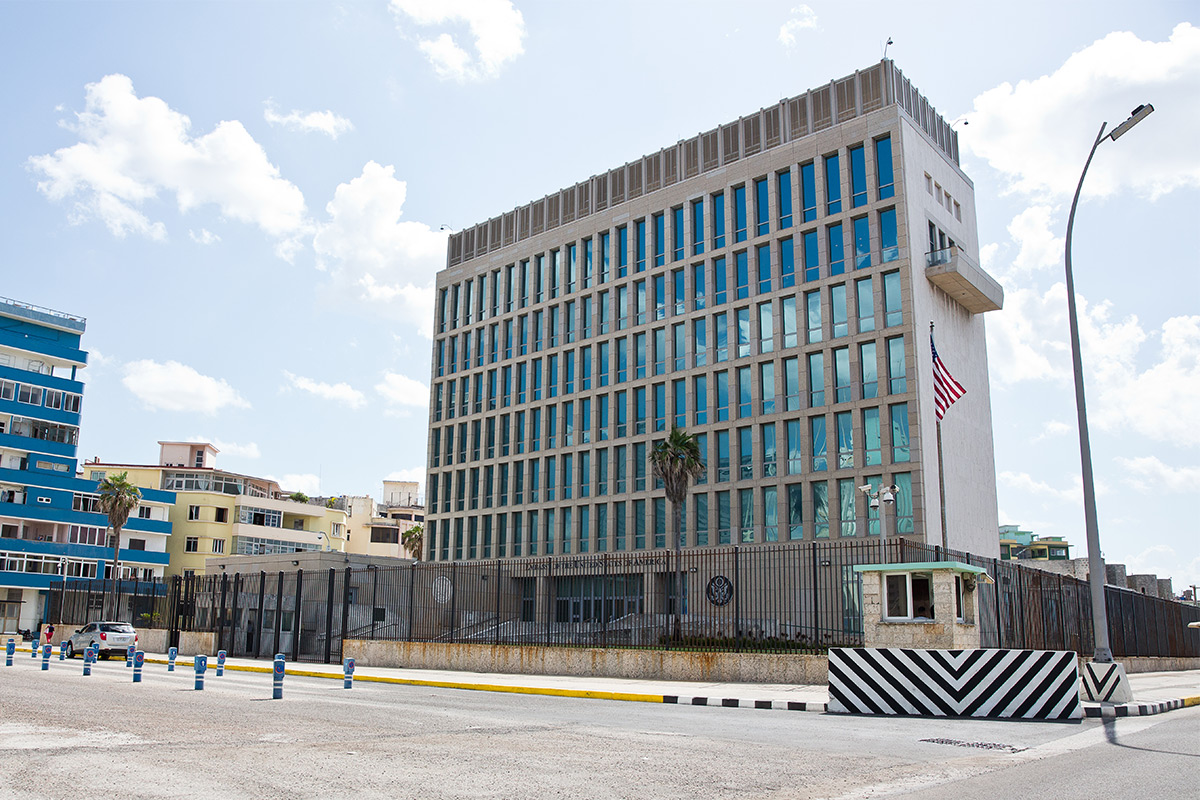Here's Why US Claims of Cuban 'Ultrasonic Weapons' Don't Make Sense

A global expert on ultrasonic waves thinks the widely reported claim that U.S. embassy staffers in Cuba were attacked with a sonic weapon doesn't make sense.
In 2016, U.S. embassy staff in Cuba started to complain about a series of unusual symptoms after hearing loud, strange noises and feeling "ghostly" movements in the air. The symptoms included hearing loss and even signs pointing to brain injury. In early reports, U.S. officials suggested that sonic weapons were likely the cause, though later, thorough medical studies cast doubt on that notion. Timothy Leighton, a professor of acoustics at the University of Southampton in England, said the whole concept of using ultrasonic waves in this way is "ridiculous."
"At the end of the day, I think it's extremely unlikely this was an ultrasonic attack," Leighton told Live Science in advance of a presentation at the 175th Meeting of the Acoustical Society of America today (May 9) on the real problems associated with ultrasonic waves. [The 7 Biggest Mysteries of the Human Body]
The notion is so absurd, he said, because ultrasonic waves simply don't affect the whole population equally, so it would be impossible to know in advance whether anyone in the embassy — let alone specific staffers — would be harmed by the attack.
Ultrasonic waves are simply very high-pitched sound waves, too high for most people to hear. Scientific papers from as far back as the 1960s have shown that these waves can have negative effects on sensitive people, with symptoms ranging from tinnitus to nausea.
But those effects, Leighton said, aren't evenly distributed.
Adult men tend to be least sensitive to ultrasonic waves, Leighton said, because they tend to lose their ability to hear high frequencies. Adults in general are less susceptible to ultrasonic waves than children, who often have much better hearing in high frequencies — though women are somewhat more likely to be susceptible.
Sign up for the Live Science daily newsletter now
Get the world’s most fascinating discoveries delivered straight to your inbox.
"If you're attacking embassy staff you wouldn't choose a weapon where the adverse effect on an individual is highly variable," Leighton said.
(Leighton is speaking here as an expert on the acoustics of ultrasonic waves, not a weapons expert.)
It's not implausible that an ultrasonic weapon might cause some damage in the right circumstances, Leighton said, but a building full of adults, many of them men, would be an unlikely target.
"Now if we were talking about a maternity ward and we wanted to make babies cry, then that's a weapon to choose."
The other issue, he said, is that even very loud ultrasonic waves have a pretty limited range in buildings.
"It's not like a rifle that you can shoot through a wall," he said. "It can get people in this room and the next room, and that's it."
Originally published on Live Science.

Science news this week: Possible signs of life on another planet and a 'useless' female organ
Universe may revolve once every 500 billion years — and that could solve a problem that threatened to break cosmology
Scientists hijacked the human eye to get it to see a brand-new color. It's called 'olo.'










